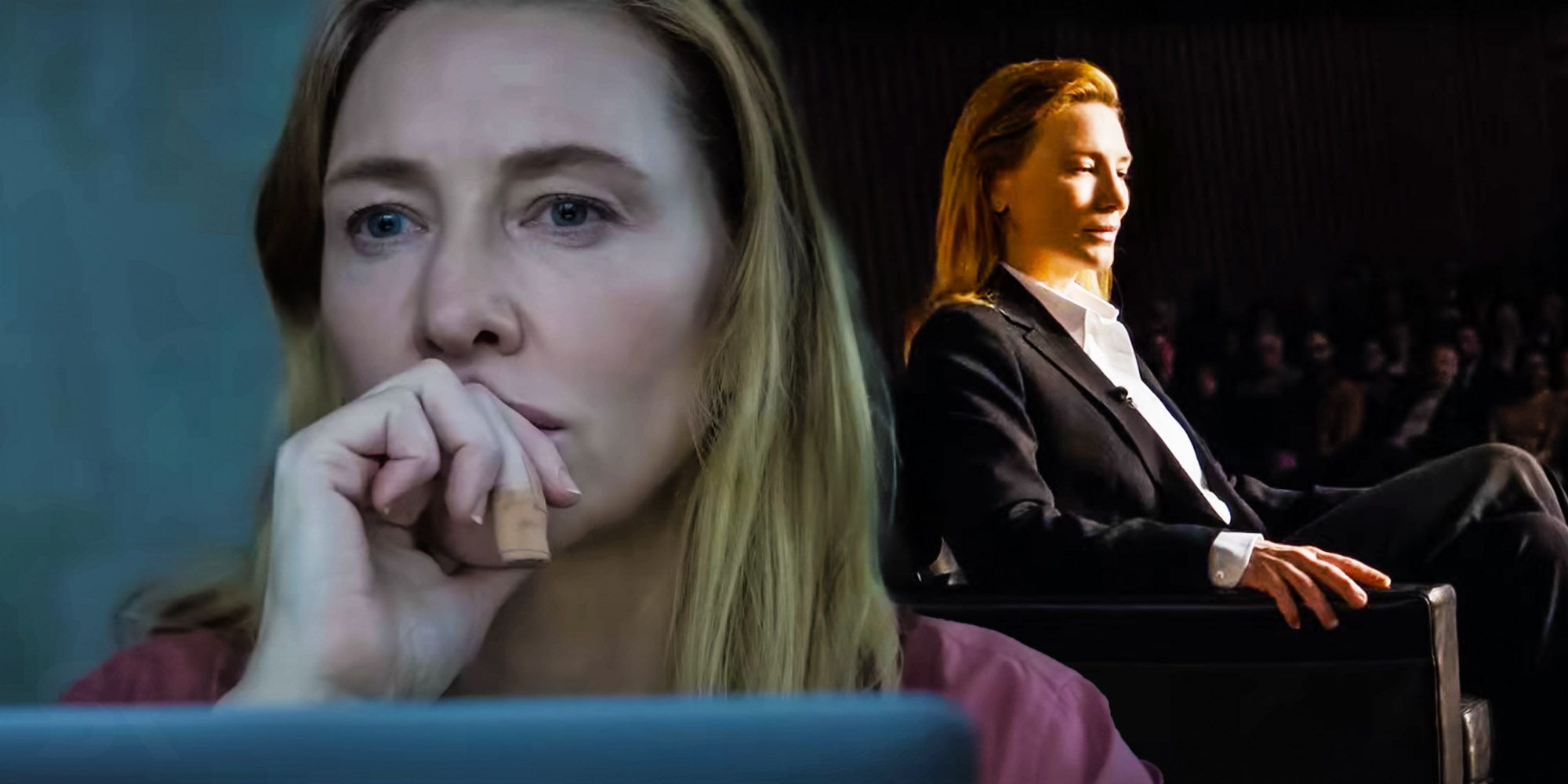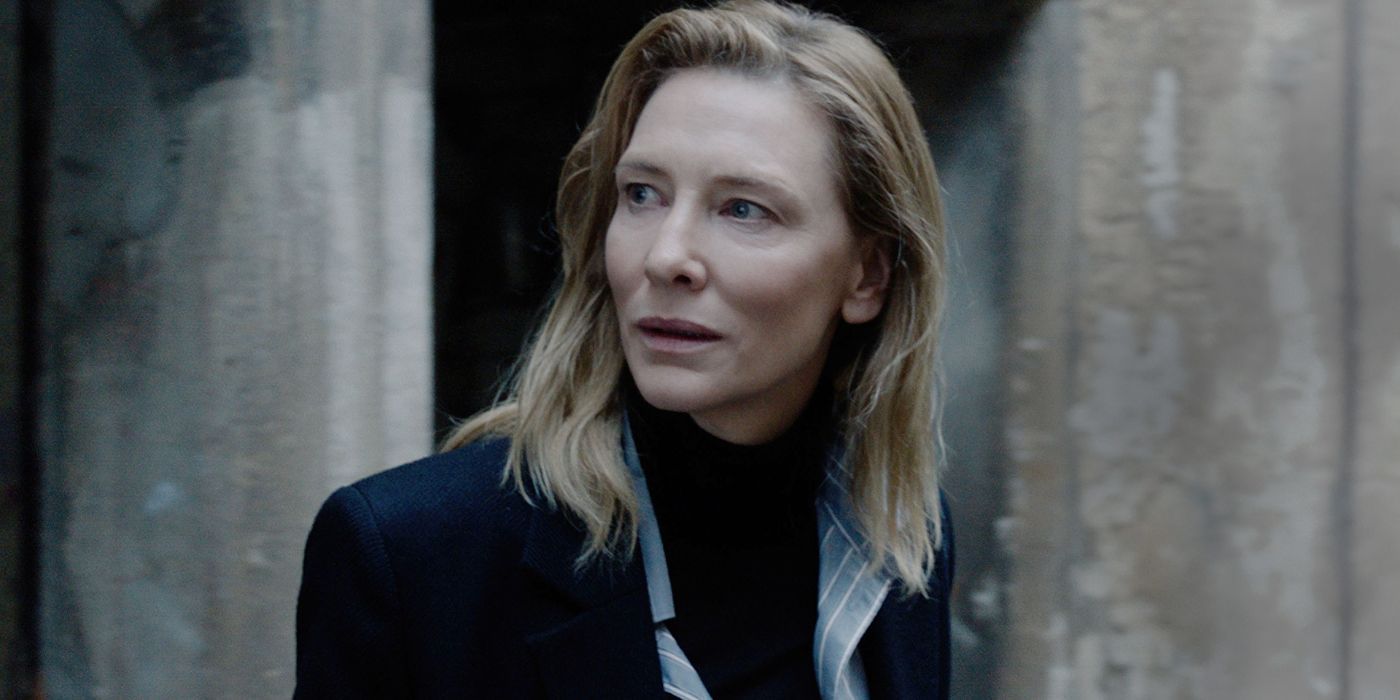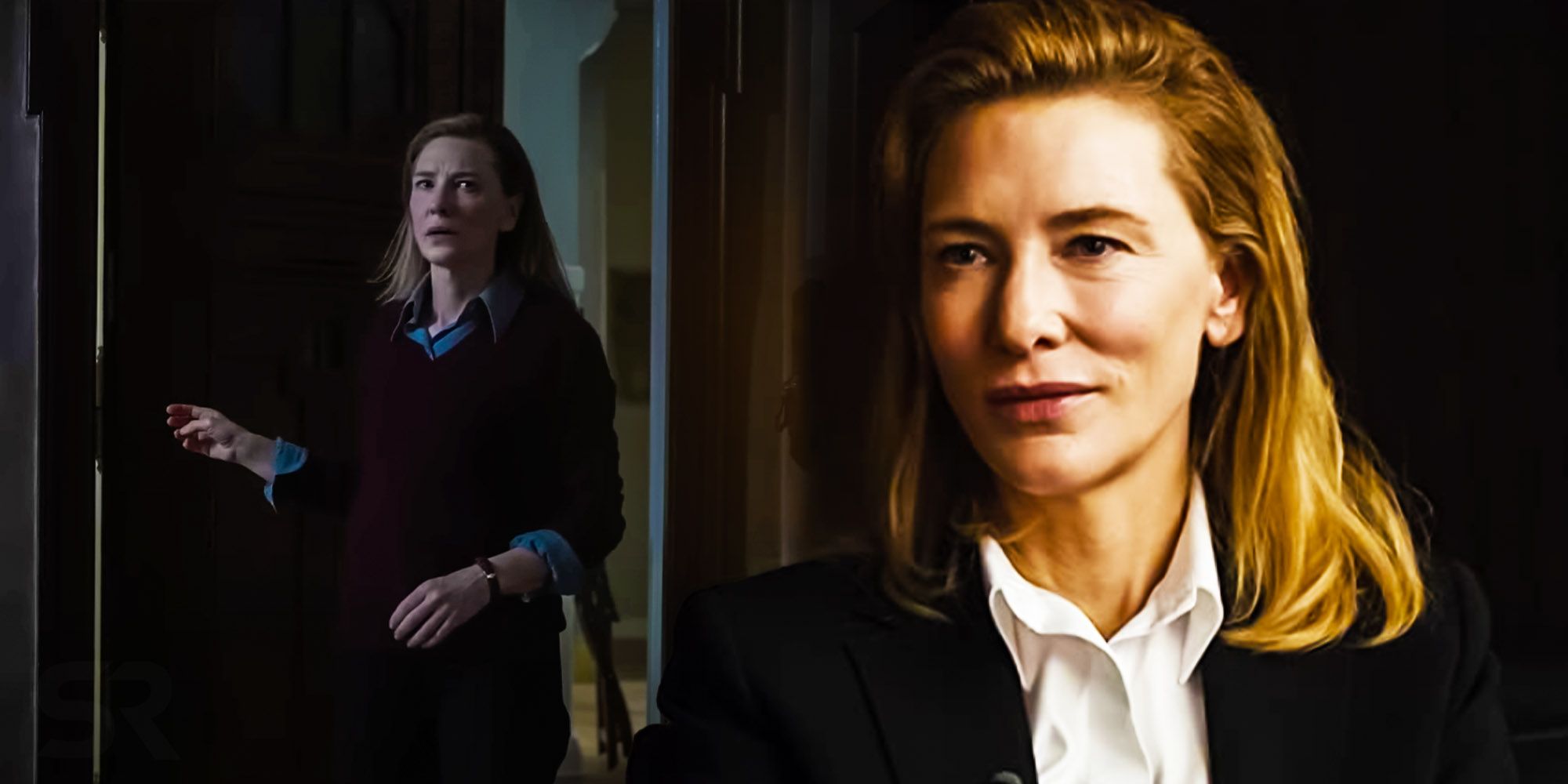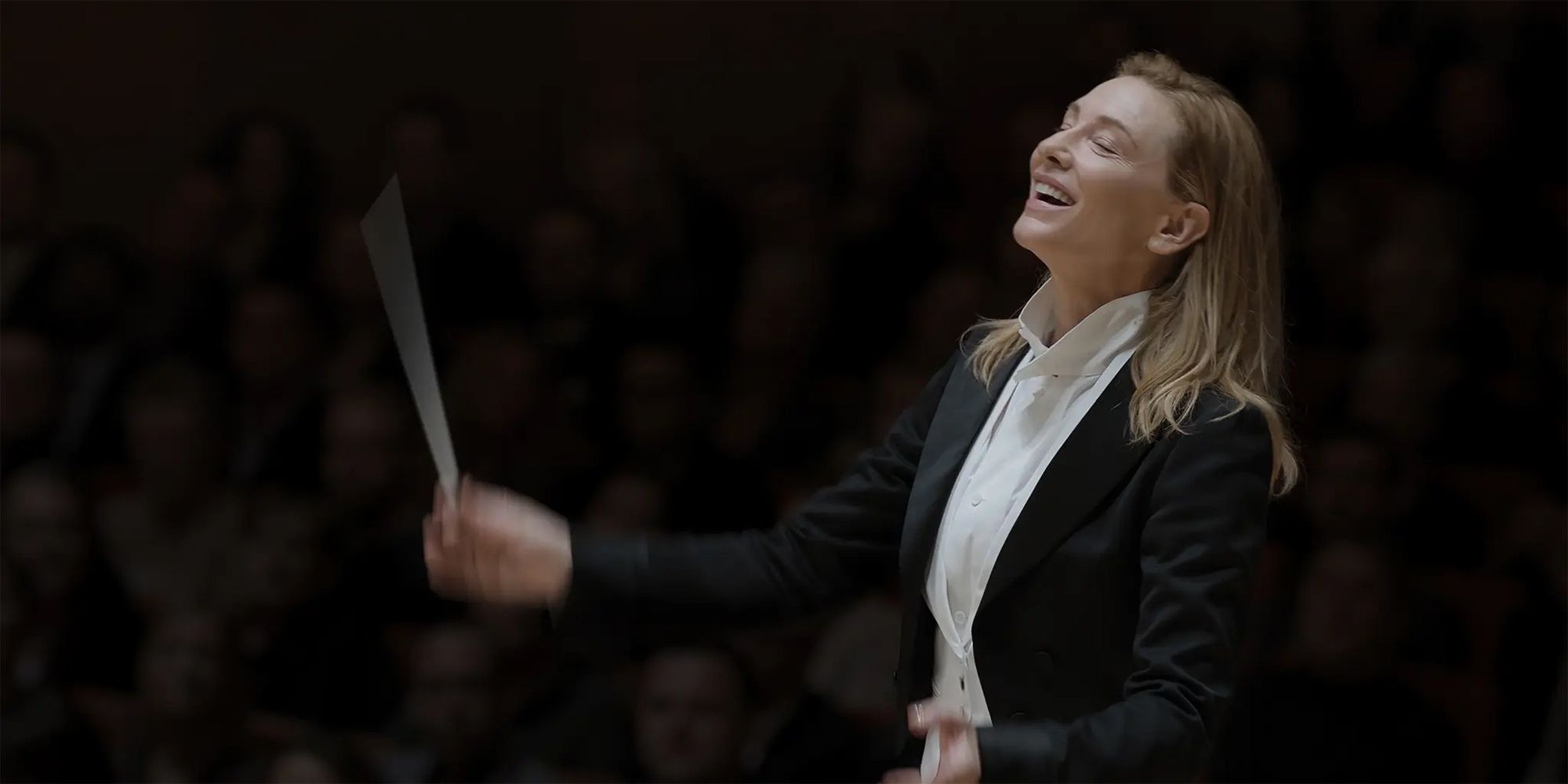Summary
- Cate Blanchett's intense performance in Tár is matched by its complex narrative and layered themes, requiring examination.
- Tár gained recognition in the 2022-2023 awards season, with accolades and nominations for Blanchett and the film.
- The Tár ending may be interpreted as a guilt-induced hallucination, with Lydia's fall from grace and her conduct of Monster Hunter symbolizing her humbling and her ongoing pursuit of perfection in music.
Contains discussion of sexual assault, abuse, and suicide.
Cate Blanchett's performance is intense, but the messaging can be opaque, so help might be needed with the Tár ending explained. Directed by Todd Field, the film tells the story of Lydia Tár, a fictional conductor whose incredibly accomplished life comes crashing down around her after a series of scandals come to the surface. Tár's complex narrative is matched by its rich and layered themes, with the film being the subject of much analysis from audiences. Tár is a film that requires much examination, and the ending's main points of confusion are explained here.
Although Tár came out in October 2022, the Cate Blanchett music drama had a resurgence in the 2022-2023 awards season. Blanchett snagged Best Actress at the Golden Globes, and Tár was top 10 for the year at the AFI Awards. Tár was also nominated for six Oscars, including being one of the 10 movies nominated for Best Picture. These accolades put Tár in a sharper focus, and bring more viewers to experience Todd Field and Cate Blanchett's film. With the movie now streaming on Prime Video, there's a lot to break down including the biggest story moments, themes, and unanswered questions.

The 25 Best Psychological Thrillers On Amazon Prime Video
The best psychological thrillers on Prime Video are some of the most compelling films of all time and should be on any film fan's radar.What Happens In Tár's Ending
Lydia's Choices Catch Up To Her
The movie follows several different aspects of Cate Blanchett's Lydia Tár's life as they fall apart simultaneously, tying them together in a tragic crescendo during the Tár ending scenes. By the finale, Lydia Tár is the subject of protests and controversy, causing her to lose her job at Julliard and her prestigious position as the conductor of a live recording of Mahler's Fifth Symphony. This causes Lydia to spiral further, with her wife, Sharon, preventing her from seeing their daughter. At the height of her depression, Lydia attacks her replacement conductor, causing her blacklisting.
Tár's Golden Globes and Oscars success is due to the balancing act it performs with Lydia at the end of the film. At the very end of Tár, Lydia finds work in the Philippines, signaling the conductor may have a second chance. However, a scene at a brothel implies that Lydia will forever carry guilt for how she sexually abused her students. As Lydia conducts her final orchestra in the film, the camera pans as it reveals she is doing a live performance of the score from the video game series Monster Hunter.
Was Tár's Ending A Hallucination?
It's A Question On Most Viewers' Minds
One interpretation of the Tár ending explained that the events are a hallucination. If this interpretation is correct, Tár could be one of the weirdest and most abstract movies Cate Blanchett has starred in. Starting with Lydia leaving her car at the abandoned apartment building, Tár's cinematography and editing change drastically, as floaty camerawork and intentional continuity errors make it clear that something isn't right. Subsequent scenes show the protests against Lydia increasing drastically in a way that doesn't appear logical.
This reading appears to hold up, and Tár makes more sense if the final scenes are a guilt-induced hallucination, with the film's ending taking place entirely inside Lydia's head. The scenes in which she assaults the conductor and sees the woman at the brothel who looks like Olga don't really make sense if everything on the screen is intended to be happening literally. Tár constantly hints that Lydia's struggle with her depression is getting worse throughout the film, and that fits with this reading of Lydia's disconnection from the real world by the ending of Tár.
Why Tár Ends With Cate Blanchett's Lydia Conducting Monster Hunter
It's Her Fall From Grace
For such a serious and dark movie, Tár has a peculiarly light ending, with Lydia conducting in front of a live audience of Monster Hunter fans in cosplay. Tár goes into detail on Lydia's past accomplishments, explaining she has written books and is attached to multiple prestigious projects at the beginning of the film. Lydia even won an Emmy, a Golden Globe, an Oscar, and a Tony, highlighting her successful career. This is juxtaposed with the Tár's ending, in which Lydia is conducting the last piece anyone would expect.
Lydia's character is a bit pretentious about music, being the type to look down upon what she sees as lesser mediums, such as video games. So, having Lydia conduct the Monster Hunter game and movie series is a punchline that shows how her life has been flipped upside down. On that stage in front of all the cosplayers, Lydia has clearly been humbled. However, the Tár ending also shows that her obsession with perfecting music will never end, with the scene seemingly kicking off Lydia's attempts to get back to the top of the music world.
The choice for Monster Hunter specifically for the Tár ending is also likely deliberate. Any video game music could have been chosen, after all, and some may wonder why a more recognizable score like Super Mario or The Legend Of Zelda wasn't chosen. Monster Hunter was picked for Lydia's final symphony because of its title, although this isn't implicitly stated during the Tár ending itself. Monster Hunter is a thematically perfect choice given Lydia's perception, both from herself out others, as a "monster." The "hunter" aspect can be read both as the guilt forever chasing her and as metaphorically fitting the public and media hounding of Lydia throughout Tár.
Is Lydia Tár A Villain?
Her Actions Are Villainous
There are two sides to whether Tár is really a villain. Judged solely by her actions, Lydia Tár should undoubtedly be seen as a villain. She is incredibly tough on her students, going on a racist tirade that causes one of her pupils to quit her class. Worst still, Lydia grooms some of her female students into sexual relationships. After one student named Krista tried to leave, Lydia blacklisted her from the industry, causing Krista to take her own life. The repeated pattern of grooming makes Lydia Tár a villain, with the film showing her finally being held accountable for her actions.
Tár, however, doesn't directly call Lydia a villain. Tár is told from the perspective of Lydia, with Cate Blanchett's character constantly trying to justify her actions to herself. Lydia is a villain, but the film leaves it up to the audience to determine that rather than spelling it out. This has made the film controversial, but the choice also makes Tár much more complex and engaging.
Tár's Real Meaning Explained
It's About Her Pattern Of Abuse
The Tár ending explained the consequences of her abuse. The film is about how abusive power dynamics are created, maintained, and eventually torn down. Throughout the film, Lydia starts new abusive relationships with her students while covering up past ones, with her cycle of sexual exploitation continuing. The complexity of Tár undoubtedly helped it to its place at the 2023 Oscars, and it is important that it highlights the way that Lydia's position of power and influence necessitates that any relationship she has with her students will be abusive.
However, Tár is about exploring the lies that abusers tell themselves in constant attempts to justify their actions. During the recorded argument between Lydia and her student, the two speak on the idea of cancel culture. The film then spends the rest of its runtime setting up a situation in which canceling someone is justified, showing that if people speak out, these abuses of power can be remedied. While these are the biggest themes, there's a lot to get out of Tár, with it tackling complex ideas that are unique to this story.
The Tár Ending Helps To Secure Its Acclaim
The Film Was Met With High Praise
While audiences might want the Tár ending explained in a way that answers everything, the movie is comfortable leaving things open-ended. This might contribute to the mixed audience reaction to Tár, yet it is likely another reason the movie was an awards season favorite. There were more satisfying endings the movie could have gone with, either Lydia totally undone by her wrongdoings or on some path of redemption. However, the movie isn't interested in playing it so safe and instead gives an ending that continues the complexities of the story and sticks to a more realistic approach.
Lydia loses everything she holds dear as a way of showing the consequences of her actions, however, the Tár ending also shows that her passion for art remains. Yet the final scene cements the humbling position Lydia now finds herself in. It makes for a complete story that has been embraced so strongly, even leading to Tár's six Oscar nominations and Cate Blanchett's Golden Globes win.






